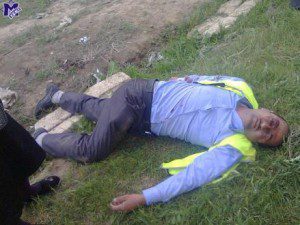Azerbaijan: Index award-winning journalist Idrak Abbasov brutally beaten
 Azerbaijani journalist and Index award-winner Idrak Abbasov was brutally assaulted today. (more…)
Azerbaijani journalist and Index award-winner Idrak Abbasov was brutally assaulted today. (more…)
 Azerbaijani journalist and Index award-winner Idrak Abbasov was brutally assaulted today. (more…)
Azerbaijani journalist and Index award-winner Idrak Abbasov was brutally assaulted today. (more…)
A video posted online titled “All the Truth about Russians,” was ruled extremist by a Novosibirsk court on Monday. The video, posted on social networking sites by a man from the town of Berdsk who faces extremism charges in the case, has been removed and banned because it shows Russians in a negative light, the regional prosecutor said in a statement. It has been reported that audio accompanying the video included statements about “how easy Russian women are” and how Russian men “are not worthy of being called men”.
Freelance journalist John Grobler has won a libel case against Namibia’s ruling Swapo party. On Friday (13 April), the party was ordered to pay Grobler 300,000 Namibian dollars (27,300 GBP) in damages in connection to defamatory statements made about him on the party’s website in September 2009. This is the first time that Swapo itself — rather than an individual party officeholder — has been held legally accountable over libelous statements made on a party platform. It is also the first time that online content has led to someone being held liable for defamation in the country.
A St Petersburg judge has postponed a hearing faced by chairman of the Russian LGBT Network and an independent attorney under the city’s new anti-gay censorship law, as papers relating to the charge were found to be missing. The hearing, originally scheduled for 16 April, will now take place on 23 April. Attorney Sergey Kondrashov and LGBT Network chair Igor Kochetkov are charged with the promotion and propaganda of homosexuality as well as disobeying a police officer. They were arrested on 7 April in St Petersburg while protesting the new law with banners during a “Day of Silence”.